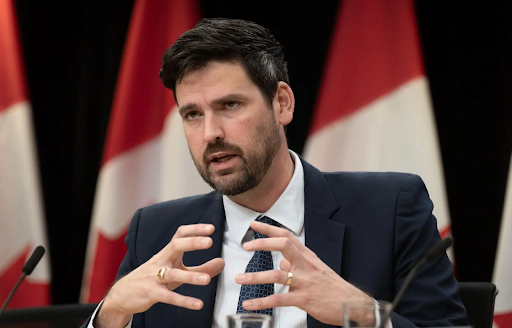
This warning appeared in documents prepared in 2022 for former Immigration Minister Sean Fraser as the Government of Canada considered lifting the restriction on the number of hours international students could work off campus . This policy was finally implemented by the Liberal government.
The Canadian Press obtained the internal documents through a freedom of information request.
Removing the cap could help alleviate labor shortages, a memorandum to the minister conceded, but it could also have other unintended consequences.
“While a temporary increase in the number of hours international students can work off-campus could help address these shortages, it could shift attention away from international students' primary academic focus and place more emphasis on work,” the note said.
Canada's international student program has come under intense scrutiny in recent months as part of a broader criticism of liberal immigration policies that have fueled rapid population growth and contributed to Canada's housing crisis. This scrutiny has led the government to introduce a cap on study permits over the next two years.
More than 900,000 international students were granted visas to study in Canada last year, more than three times the number 10 years ago.
Critics have questioned the dramatic increase in international student enrollment at questionable postsecondary institutions and raised concerns that the program is an open door to permanent residency.
The memo says removing the limit for off-campus work would be in stark contrast to temporary foreign worker programs, which require employers to prove they need a migrant worker and that no Canadian or permanent resident is available to do the job.
Minister Fraser finally announced in October 2022 that the federal government would lift the restriction until the end of 2023 to alleviate labor shortages across the country. The exemption only applied to students who were already in Canada or those who had already applied, so as not to incentivize foreign nationals to obtain a study permit solely to work in Canada.
In December, Immigration Minister Marc Miller extended this policy until April 30, 2024 and floated the idea of setting the cap at 30 hours per week thereafter.
In an interview with The Canadian Press on Monday, Minister Miller explained that he extended the exemption because he did not want to interfere with students' working arrangements in the middle of an academic year. “What I really didn't want to do was impact current year students who have done their financial calculations on how they're going to be able to support themselves and how they're going to be able to pay tuition , rent and food,” he said.
Ministerial sources show, according to the minister, that more than 80% of international students currently work more than 20 hours per week. Waivering the number of hours international students could work was the right decision given the labor shortages Canada was facing, but the policy was never meant to be permanent, he noted. .
Vacancies soared to more than 1 million in the second quarter of 2022, but have steadily declined since then as the economy slows. Minister Miller is now considering making a permanent change to the cap that would set it between 20 and 40 hours per week. “It is not credible that someone can work 40 hours and follow an appropriate program. »
The objective, he recalled, is to propose a ceiling which gives students the opportunity to acquire good work experience and helps them pay their bills, without harming their studies. “So what does a reasonable number of hours look like for someone studying here, knowing that they are paying three to four times, sometimes five times the price of a domestic student? I think it’s been over 20 hours,” in his opinion.

















No comments:
Post a Comment
Comment